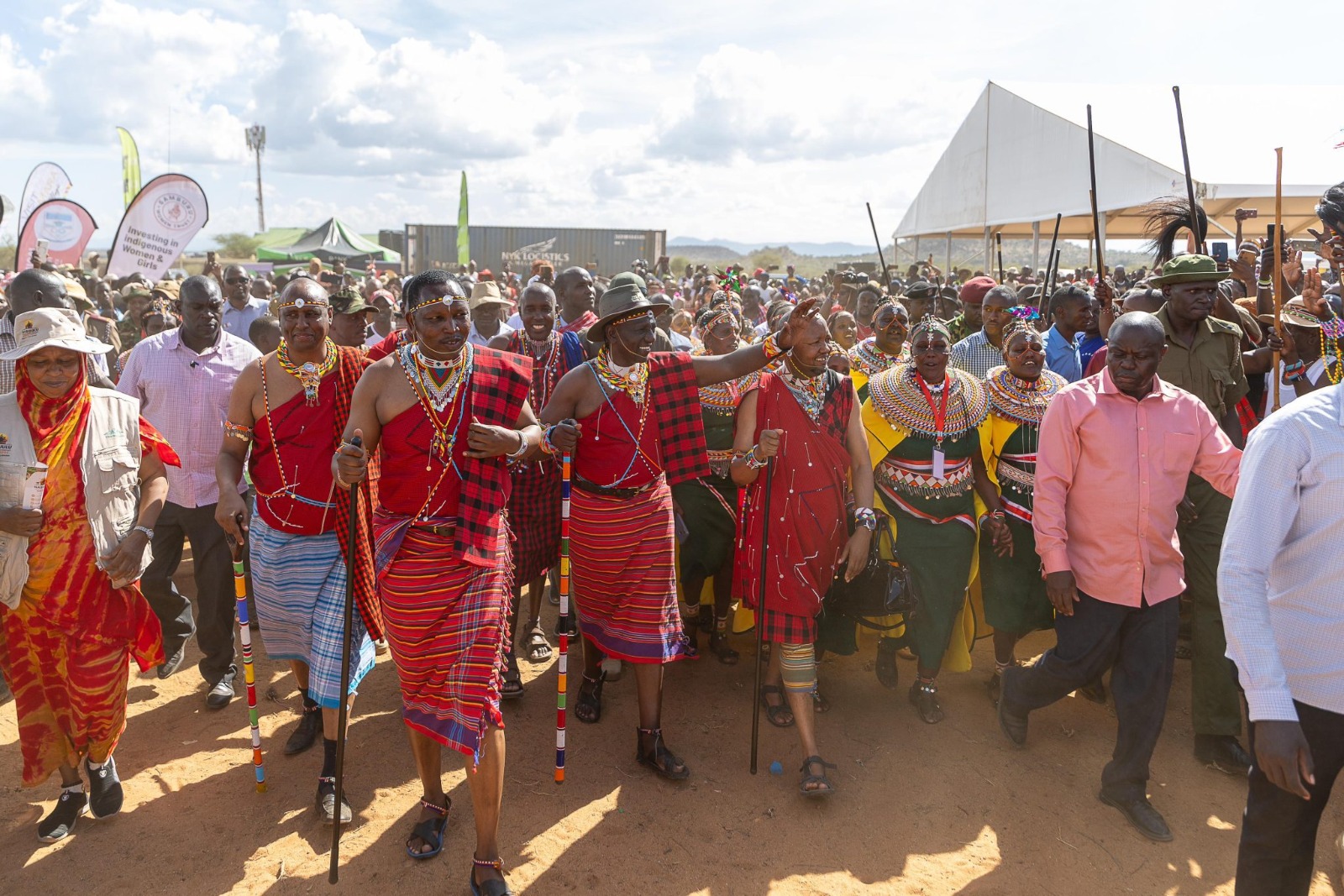
The government will vaccinate 72 million livestock from January, President William Ruto has said.
Speaking during the Maa Cultural Festival on Friday, Ruto said the nationwide livestock vaccination programme is set to begin in January.
This ambitious programme will cover 22 million cattle and 50 million goats and sheep.
The initiative is aimed at tackling widespread livestock diseases and enhancing Kenya’s ability to export high-quality livestock products to both national and international markets.
“This will ensure we access both national and international markets for our livestock products,” President Ruto said.
The vaccination drive is part of a larger government effort to revitalise the livestock sector, especially in drought-prone regions, where many families have lost herds due to adverse weather.
In support of affected pastoralists, the government has allocated Sh1 billion for restocking, pledging to purchase 55,000 goats and sheep for distribution to families in need.
“We are committed to ensuring that families who lost their livestock during the drought benefit from the government programme,” President Ruto said.
Also present at the festival included Tourism CS Rebecca Miano, and Governors Jonathan Lati Lelelit (Samburu), Patrick ole Ntutu (Narok), Joseph ole Lenku (Kajiado), and Mohamud Ali (Marsabit), as well as several MPs, MCAs, and other local leaders.
In a significant boost for the leather industry, President Ruto announced the completion of a leather industrial park at Kenanie and Narok.
This facility is expected to eliminate leather wastage and save the country an estimated Sh10 billion annually.
“Through these facilities, we will be able to save Sh10 billion we have been losing in leather,” he said.
The President also committed to increasing environmental
conservation efforts in arid and semi-arid regions to combat the severe impacts
of climate change, particularly drought.
The government plans to distribute drought-resistant seedlings to encourage reforestation and reduce livestock losses.
“Forty percent of proceeds from the carbon market will go directly to the community,” he said.
He reiterated the government’s dedication to supporting rural communities in climate adaptation and environmental sustainability.
On healthcare, President Ruto reiterated his administration’s goal of achieving universal health coverage (UHC).
He explained that the government is working on paying off debts owed to the National Hospital Insurance Fund (NHIF) as it transitions to the new Social Health Authority.
“Universal Health Coverage will become a reality under this administration because we have planned it well,” he said.
He assured Kenyans that the revamped system will ensure no one is asked to pay when seeking medical treatment.
For those unable to afford healthcare costs, the government will cover expenses to ensure everyone receives quality medical care, he said.
President Ruto further highlighted his government’s commitment to education, announcing the establishment of a new subcounty, Ilchamus, aimed at improving access to public services and schooling.
He urged the Maa community to prioritise education, terming schooling as the greatest equaliser.
Ruto explained the government’s new student-centred higher education funding model designed to provide every student a fair chance, regardless of financial background.
In a strong message on security, the President affirmed that the government would continue its operations to eliminate cattle rustling, banditry, and other security challenges in the region.









